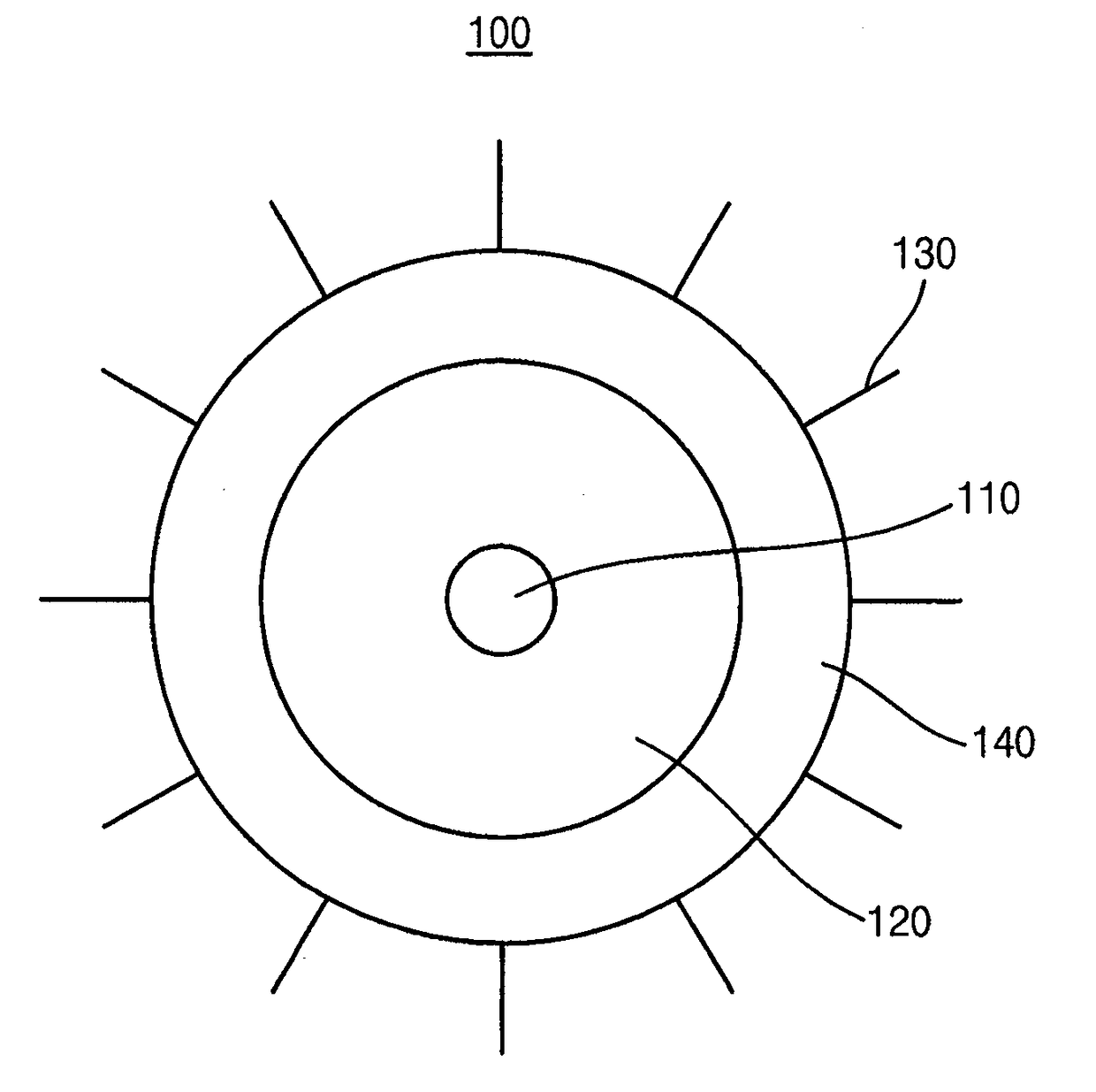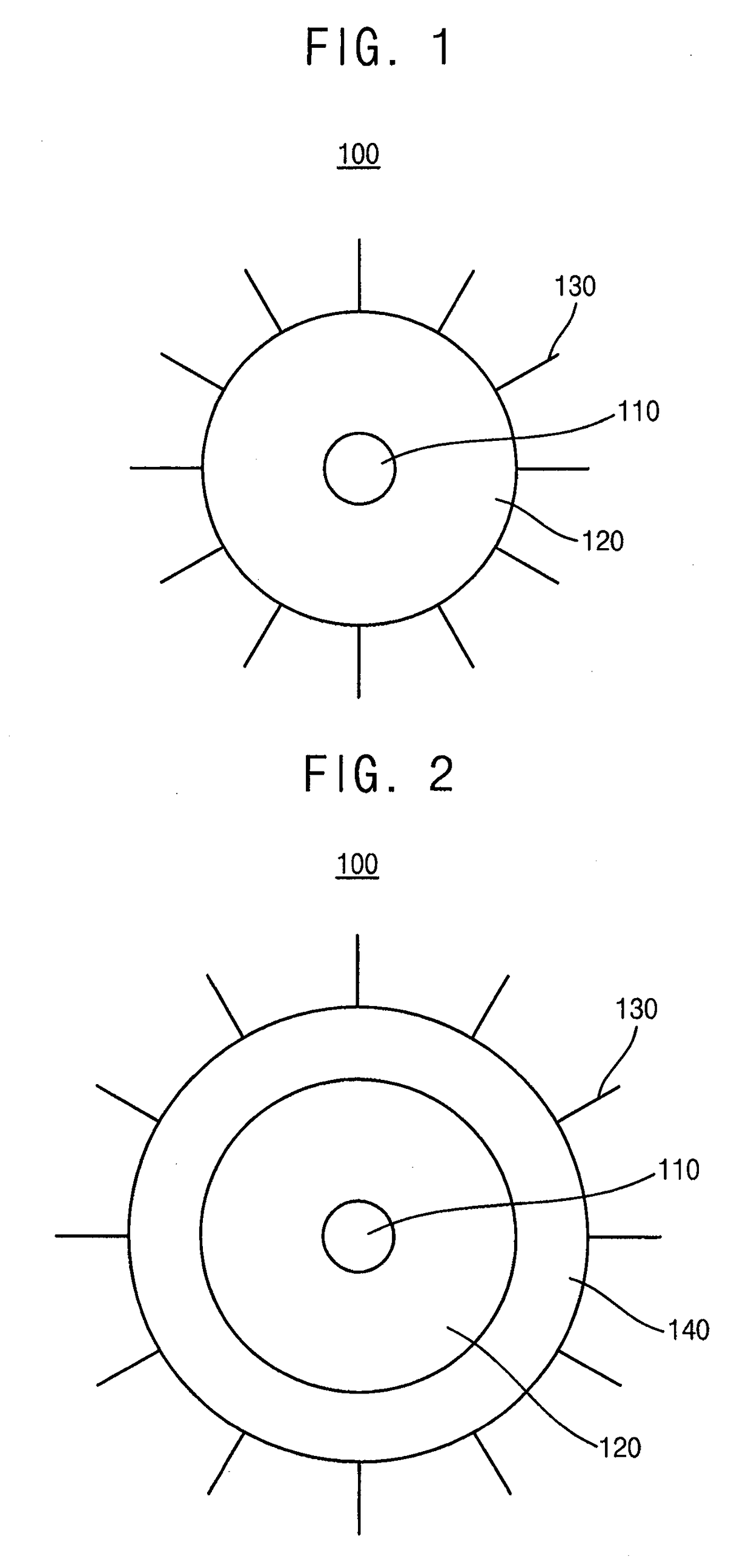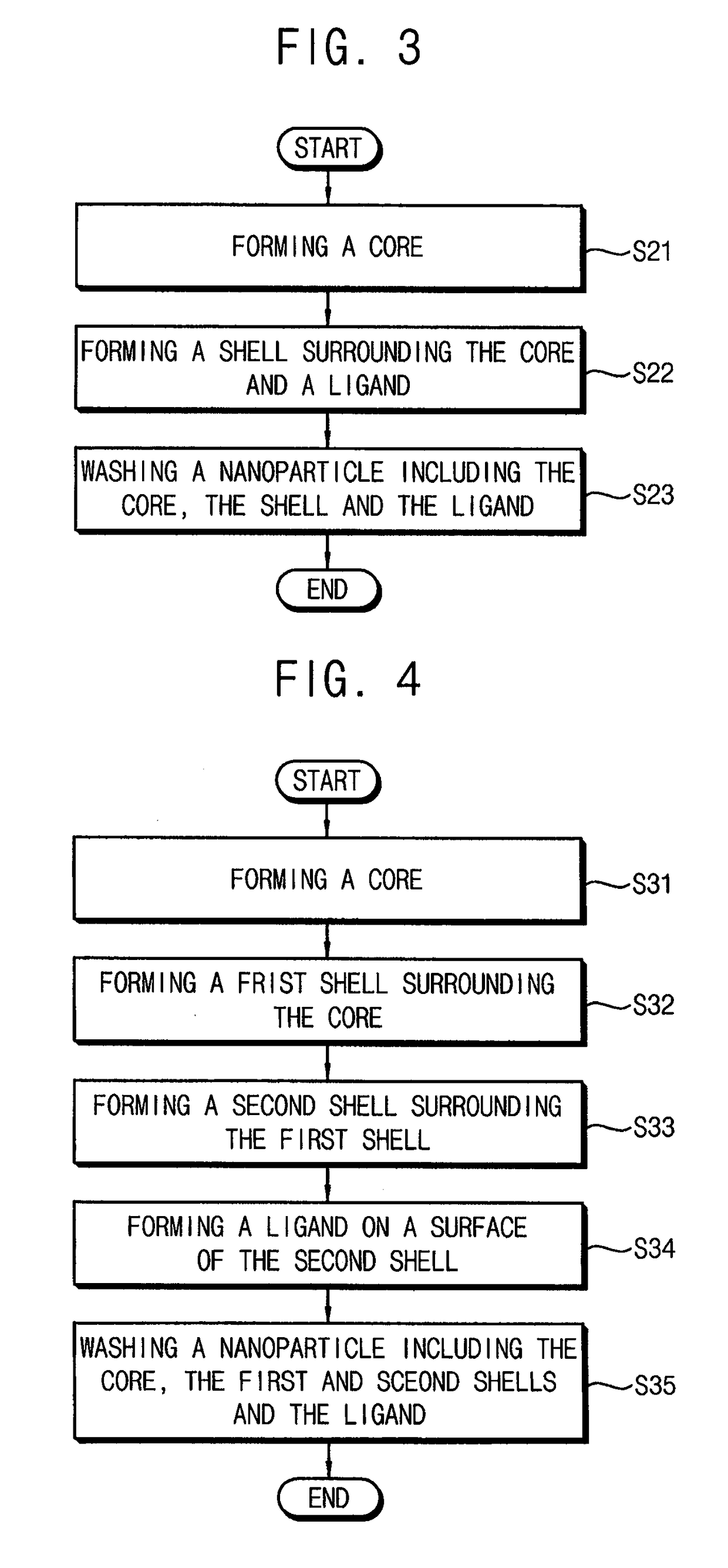Quantum dots, methods of manufacturing quantum dots and methods of manufacturing organic light emitting display devices using the same
a technology of light emitting display device and quantum dots, which is applied in the direction of solid-state devices, chemistry apparatuses and processes, and light sources. it can solve the problems of poor current efficiency, low luminance, and poor quantum efficiency of quantum dots, and achieve high quantum efficiency, high quantum efficiency, and easy to obtain
- Summary
- Abstract
- Description
- Claims
- Application Information
AI Technical Summary
Benefits of technology
Problems solved by technology
Method used
Image
Examples
example 1
[0096]1 mmol of cadmium oxide and 10 mmol of zinc acetate were added into a three neck flask, and 15 ml of 1-ODE and 7 ml of oleic acid were also added therein to form a first mixture. The first mixture was heated to a temperature of about 150° C. under a vacuum condition, and then heated again to a temperature of about 310° C. under an argon (Ar) atmosphere. 1.6 mmol of sulfur powder was added to 2.4 ml of 1-ODE to form a second mixture, and then the second mixture was added to the heated first mixture to cause a reaction therebetween for about 12 min. Thus, a ZnCdS core was formed. After 4 mmol of sulfur powder was added to 5 ml of oleic acid to form a third mixture, the third mixture was added dropwise onto a surface of the core to cause a react therebetween. The reaction was maintained for about one hour. Hence, a nanoparticle including a ZnS shell or a ZnCdS shell and an oleate ligand was formed. The nanoparticle was precipitated in acetone, and a centrifugal process was perfor...
example 2
[0097]Except that a reaction between a third mixture and a core was maintained for about 2 hours, processes substantially the same as or similar to those of Example 1 were performed to thereby obtain a quantum dot.
example 3
[0098]Except that a reaction between a third mixture and a core was maintained for about 4 hours, processes substantially the same as or similar to those of Example 1 were performed to thereby obtain a quantum dot.
PUM
| Property | Measurement | Unit |
|---|---|---|
| size | aaaaa | aaaaa |
| temperature | aaaaa | aaaaa |
| temperature | aaaaa | aaaaa |
Abstract
Description
Claims
Application Information
 Login to View More
Login to View More - R&D
- Intellectual Property
- Life Sciences
- Materials
- Tech Scout
- Unparalleled Data Quality
- Higher Quality Content
- 60% Fewer Hallucinations
Browse by: Latest US Patents, China's latest patents, Technical Efficacy Thesaurus, Application Domain, Technology Topic, Popular Technical Reports.
© 2025 PatSnap. All rights reserved.Legal|Privacy policy|Modern Slavery Act Transparency Statement|Sitemap|About US| Contact US: help@patsnap.com



